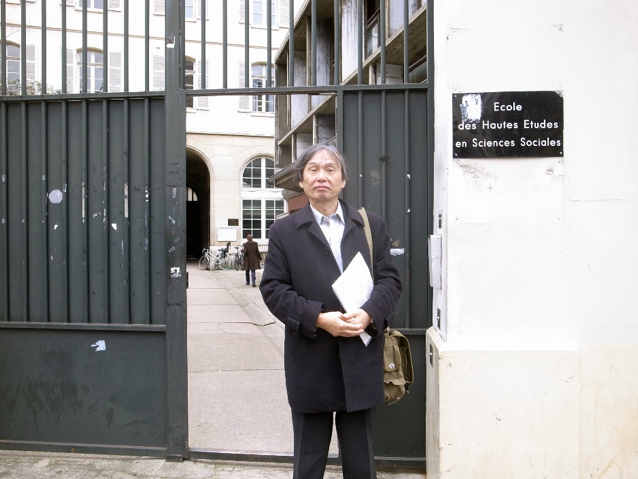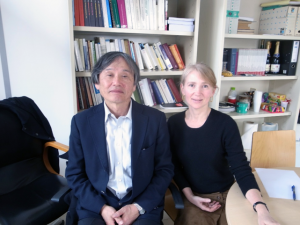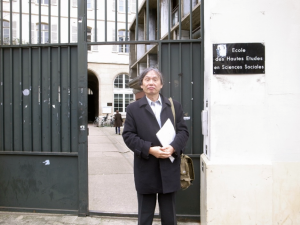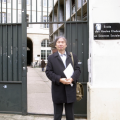
France Report
Kyoto University
Specially Apointed Professor of The Center for African Area Studies
Shigeki Kaji
I traveled to France. The aim of the trip was to strengthen ties with the alliance partner of our current Brain Circulation Program in Paris, the School for Advanced Studies in Social Sciences at the French National Center for Scientific Research. I left Japan on March 19, and returned home on March 23, essentially spending three days in Paris, France. As I arrived on the weekend, I had practically only one day (March 21) for professional discussions. Nevertheless, this visit was fruitful.
I met with Dr. Emmanuelle Olivier at the French National Center for Scientific Research, School for Advanced Studies in the Social Sciences. Dr. Olivier is an ethnomusicologist who wrote her doctoral thesis on Bushman music. As she works closely with Associate Professor Takada, a member of our Program, I was able to make an appointment through him. Dr. Olivier often comes to Japan; I met her once previously—18 years ago, when Dr. Kiyoshi Takeuchi of the University of Toyama invited her to Japan with his scientific research fund. I was in Tokyo at the time, and I showed her around the city after she left Toyama. Naturally, I remembered her and she also remembered me.
The French National Center for Scientific Research, School for Advanced Studies in the Social Sciences was originally the School of Advanced Studies (École Pratique des Hautes Etudes (EPHE)). It went through several reforms, reaching its current position in 1975. It is a large educational and research institution in the field of sociology. Looking at the organization’s homepage, I see that it has 3,000 undergraduate students, 1,500 doctoral students, and 300 researchers. Dr. Olivier’s office is not in the main building, but in Georg Simmel Center, a short distance away. I visited her research lab on the afternoon of March 21st.
Dr. Olivier works in the research center while teaching classes at various locations and supervising several students (primarily graduate students). The position of staff members at this center is very similar to the position of our teachers at ASAFAS. For this reason, she showed her interest to actively push for interaction between our two organizations’ students and researchers. In Paris, I met with Ms. Natsumi Mitarai, my student at ASAFAS. She accompanied me to the meeting with Dr. Olivier, who kindly offered to help with any research problems that may arise. Ms. Mitarai is a student of ASAFAS, while also working at the École Normale Supérieure (ENS) through the “Tobitate! Exchange Japan” program. She is very well and making progress with her research.
I also met two other researchers in Paris. One is Dr. Didier Demolin, who works at the Institute of Phonetics of the University of Paris 3. Dr. Demolin is a phonetician with an interest in ethnomusicology, who publishes on CD various types of ethnic music, including the music of the Mangbetu people of the Congo. He has been a friend of mine for some 30 years. He is also on friendly terms with Dr. Olivier. With him, I have collaborative research on various topics, such as the Pygmy and drum languages. The other researcher is Dr. Françoise Hamers, who carries out AIDS research. I’ve known her too for some 30 years. Dr. Demolin and Dr. Hamers are both Belgian; I know them because of my research experience in the Congo (formerly Zaire). On my final night in Paris (March 22), the four of us, including Ms. Mitarai, enjoyed discussing research and world affairs at a restaurant near Saint Michel.
With Dr. Emmanuelle Olivier in her research lab











